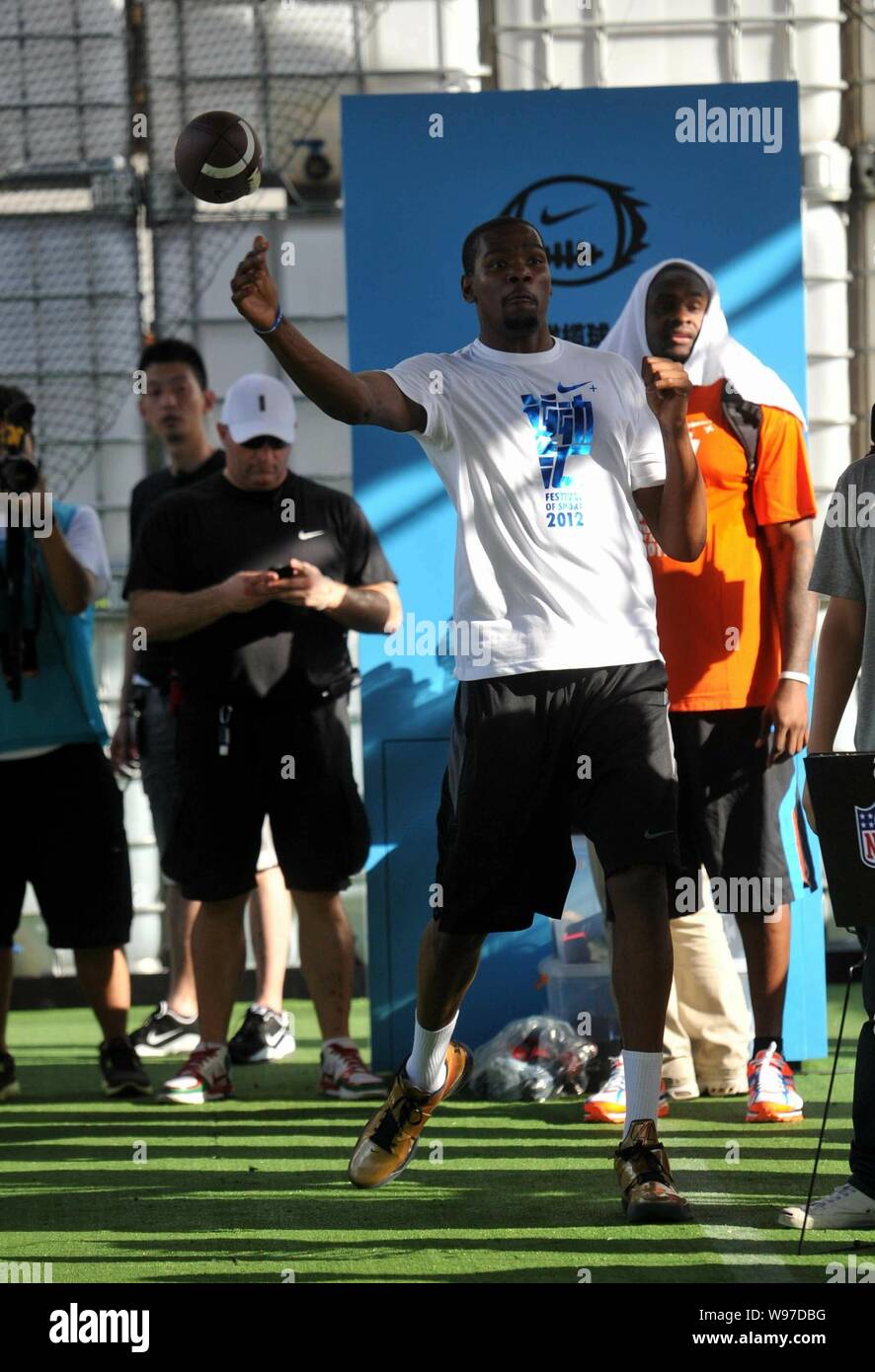There are moments, you know, in the world of music and celebrity, when an artist does something that truly gets everyone talking. Sometimes, it's a new song, a powerful lyric, or a groundbreaking album. Other times, though, it's something unexpected, something that happens outside the recording studio, maybe even on stage. For Kevin Gates, a very prominent figure in hip-hop, certain instances described as "jumping" have definitely sparked a lot of conversation and, arguably, shaped how many people see him. It's a topic that, for many fans and observers, is almost always at the front of their minds when thinking about his public appearances.
Kevin Gates, with his unique blend of raw honesty, deep introspection, and street narratives, has really carved out a distinct space in the music scene. He’s known for his powerful storytelling and a delivery that feels incredibly genuine. His live performances, too, are often a spectacle of energy and passion, drawing in huge crowds who connect with his every word and movement. So, it's no surprise that when something out of the ordinary happens involving him, people pay close attention.
This article aims to explore the various facets of "Kevin Gates jumping," looking at the moments that have made headlines and the broader context surrounding them. We'll try to get a better sense of what these incidents mean for his career and his connection with fans. It's about getting to the bottom of what happened, you know, and why it became such a big deal, even today.
- When Can I Take My Puppy On Walks
- Adam Levine How Tall
- Net Worth Cher
- Tiny Homes Under 50k
- Who Was Howard Wife
Table of Contents
- Kevin Gates: A Brief Look at the Artist
- The Notion of "Kevin Gates Jumping": What It Means
- Specific Incidents That Caught the Public's Eye
- Understanding the Impact on His Persona
- Fan Perceptions and Media Coverage
- The Artist and His Audience: A Complex Bond
- Frequently Asked Questions About Kevin Gates Jumping
- Reflecting on the Moments
Kevin Gates: A Brief Look at the Artist
Before we get into the specifics of "Kevin Gates jumping," it's helpful to get a quick overview of the man himself. Kevin Gates, whose birth name is Kevin Jerome Gilyard, has really made a name for himself in the music industry. He's known for his unique lyrical style and his very open approach to sharing his life experiences through his songs. That, you know, is a big part of his appeal.
It's interesting, too, that the name Kevin itself has quite a history. The name Kevin is a boy's name of Irish origin, meaning "handsome." It's the anglicized version of the Gaelic name Caoimhín, derived from Old Irish Cóemgein, composed of "cóem" (dear, beloved, gentle) and "gein" (birth). Kevin came to the U.S. with a large wave of Irish immigrants after World War I, hitting the U.S. top 1000 list. So, while the name has a gentle origin, Kevin Gates the artist often projects a very different, more intense image, which is quite fascinating.
His music often touches on very personal topics, including his struggles, his time in prison, and his spiritual beliefs. He doesn't shy away from talking about the hard parts of life, and this honesty has, in a way, built a very loyal fanbase. People really appreciate that he keeps it real, you know?
- Ken Flores Funeral
- Evaporative Cooler Or Portable Air Conditioner
- January 25 2025 Planets Align Spiritual Meaning
- Chapel From Return To Amish
- Has Leonardo Dicaprio Ever Been Married
Personal Details and Bio Data of Kevin Gates
| **Full Name** | Kevin Jerome Gilyard |
| **Known As** | Kevin Gates |
| **Born** | February 5, 1986 |
| **Birthplace** | Baton Rouge, Louisiana, USA |
| **Nationality** | American |
| **Genre** | Hip Hop, Rap |
| **Years Active** | 2007–present |
| **Associated Acts** | Bread Winners' Association |
The Notion of "Kevin Gates Jumping": What It Means
When people talk about "Kevin Gates jumping," they're usually referring to a few different things. It's not just about him literally leaping in the air, though his performances can be quite energetic. More often than not, it points to moments where he's involved in some kind of physical altercation or a very intense, sudden reaction during a public event, especially at concerts. It's a phrase that, you know, has become a sort of shorthand for these controversial instances.
These events tend to stand out because they often go viral, spreading quickly across social media platforms. People share clips and talk about what happened, leading to a lot of discussion and debate. It's a bit like a ripple effect, where one moment can, in some respects, define a public conversation around an artist for a while. So, the phrase itself carries a certain weight because of these past occurrences.
It's important to consider the context of these moments. Are they isolated incidents? Are they part of a larger pattern? Is it about self-defense, or is it about something else entirely? These are the kinds of questions that often come up when someone mentions "Kevin Gates jumping," and it's what makes the topic, you know, quite interesting to explore.
Specific Incidents That Caught the Public's Eye
Over the years, a few particular incidents have really brought the phrase "Kevin Gates jumping" into the public consciousness. These moments, often captured on video by concertgoers, show intense interactions that quickly become viral sensations. They certainly highlight the unpredictable nature of live performances, especially when an artist connects so intensely with their audience, or, in some cases, confronts them.
The Florida Concert Event
Perhaps the most widely discussed incident took place at a concert in Lakeland, Florida, back in 2015. During his performance, a young woman in the crowd, it was reported, reached out and grabbed his shorts. Kevin Gates reacted very quickly and forcefully, kicking the woman in the chest. This event was captured on video and, as you can imagine, spread like wildfire across the internet. It sparked a huge debate about personal space, artist-fan interaction, and, you know, appropriate responses.
The incident led to legal consequences for Kevin Gates. He was charged with battery, and the case drew a lot of attention. This particular "jumping" moment, arguably, became a defining one in terms of public perception for a while. It really showed how quickly things can escalate during a live show and how, you know, an artist's actions can have immediate and far-reaching effects.
The aftermath of this event saw both strong criticism and staunch defense from his fanbase. Some people felt his reaction was completely out of line, while others argued he was provoked and had a right to defend himself. It was a moment that, you know, really split opinions down the middle, showing the complexity of these situations.
Other Public Reactions
While the Florida incident is perhaps the most famous example, there have been other times where Kevin Gates's intense reactions or his general stage presence has been described in similar terms. Sometimes, it's about his passionate engagement with the crowd, which can appear very aggressive to some, even if it's just raw energy. These moments, while perhaps not leading to legal issues, still contribute to the overall narrative of "Kevin Gates jumping."
His live shows are known for their high energy, and he often interacts very directly with his audience. This directness, you know, is a double-edged sword. It creates an incredibly immersive experience for fans, but it also carries the potential for misunderstandings or, as we've seen, physical confrontations. It’s a delicate balance that artists have to strike, really, between being authentic and maintaining control.
These various instances, whether they involve physical contact or just incredibly animated performances, feed into the public's understanding of Kevin Gates as an artist who is, you know, very much uninhibited and perhaps a little unpredictable. It's part of the package, in a way, when you're dealing with such a raw and honest performer.
Understanding the Impact on His Persona
The "Kevin Gates jumping" incidents have undeniably had an impact on his public persona. For many, these moments reinforce an image of him as a tough, no-nonsense individual who isn't afraid to react strongly. This perception, you know, aligns with the themes often found in his music, which frequently explores street life and personal struggles. It creates a consistent, if sometimes controversial, brand for him.
Some fans, quite frankly, are drawn to this very unfiltered aspect of his personality. They see his reactions as genuine, a sign that he's not putting on an act. For them, it adds to his authenticity and makes him more relatable, in a way, because he's not trying to be perfect or polished. It's a connection based on raw human emotion and, you know, real-life experiences.
On the other hand, these incidents have also drawn criticism and concern. Some people view them as unprofessional or even dangerous, especially when they involve harm to others. This duality in perception is a key part of his public image. He's an artist who, you know, inspires strong feelings, both positive and negative, and these "jumping" moments certainly contribute to that.
It’s a bit of a tightrope walk for any public figure, especially one whose art is so deeply rooted in personal experience and emotion. How do you maintain that raw edge without, you know, crossing lines that might alienate parts of your audience or lead to bigger problems? That's a question that, arguably, Kevin Gates and his team have had to grapple with quite a bit.
Fan Perceptions and Media Coverage
The way fans react to "Kevin Gates jumping" moments is often quite varied. Some fans are incredibly loyal and will defend his actions, viewing them through the lens of provocation or self-defense. They might argue that the intense environment of a concert can lead to unexpected situations, and that his reactions are, you know, understandable given the circumstances. This unwavering support is a testament to the deep connection he has built with his audience.
Other fans, however, might express disappointment or concern. They might feel that such incidents detract from his musical talent or set a poor example. This range of reactions shows that even within a dedicated fanbase, there's a lot of different opinions about what's acceptable or how an artist should behave. It's not a simple, you know, black-and-white situation.
Media coverage, naturally, plays a huge role in shaping these perceptions. News outlets and entertainment blogs often highlight these "jumping" incidents, sometimes focusing on the sensational aspects. This coverage can amplify the controversy and, you know, bring it to a much wider audience than just his core fans. It's how these stories become part of the larger cultural conversation.
The way a story is framed by the media can heavily influence public opinion, too. Is it presented as an artist losing control, or as a response to a perceived threat? These different angles can, you know, really change how people feel about what happened. It highlights the power of narrative in the digital age, where a single video clip can be interpreted in so many ways.
It's also worth noting that in the age of social media, fans themselves become part of the media. They share videos, offer commentary, and engage in debates, further shaping the narrative around these events. This collective discussion, you know, is a powerful force in how these incidents are remembered and understood.
The Artist and His Audience: A Complex Bond
The relationship between an artist like Kevin Gates and his audience is, you know, incredibly complex. His music often feels like a direct conversation with his listeners, sharing very personal struggles and triumphs. This deep connection can sometimes blur the lines between performer and fan, especially in the raw, high-energy environment of a live show.
When "Kevin Gates jumping" incidents occur, they often highlight the tension that can arise in these close interactions. Fans want to feel close to their favorite artists, sometimes literally reaching out. Artists, too, have their own boundaries and personal space. It's a dynamic that, you know, can lead to unpredictable outcomes when those boundaries are tested.
These moments also raise questions about the responsibility of both the artist and the audience. What role does the crowd play in creating an atmosphere that can lead to such incidents? What responsibility does the artist have to manage their reactions, even when provoked? These are not easy questions to answer, and they show that, you know, it's a two-way street.
Ultimately, these "jumping" moments, whether intentional or reactive, become part of the artist's story. They add layers to his public image and contribute to the ongoing discussion about his career and his place in music. They are, in a way, a testament to the intense and often unpredictable nature of fame and public performance. You know, it's a wild ride sometimes.
For more insights into the world of hip-hop and its influential figures, you can learn more about hip-hop culture on our site. We often discuss how artists connect with their fans and the broader impact of their actions.
Frequently Asked Questions About Kevin Gates Jumping
People often have a lot of questions when they hear about "Kevin Gates jumping" incidents. Here are some common ones that come up, you know, quite a bit.
What was the outcome of the Kevin Gates concert incident in Florida?
The incident in Lakeland, Florida, led to Kevin Gates being charged with battery. He was eventually found guilty of battery in October 2016 and sentenced to 180 days in jail. It was a situation that, you know, had clear legal repercussions for him.
How do these incidents affect Kevin Gates's career?
These incidents, arguably, create a mixed perception. For some, they reinforce his raw, authentic image, which aligns with his music. For others, they might be seen as controversial and could, you know, deter some potential listeners or concertgoers. They certainly add to his notoriety, for better or worse, and keep him in the public conversation.
Are there similar incidents with other artists?
Yes, actually, instances of artists reacting to crowd behavior or getting into altercations during live shows are not entirely uncommon in the music industry. The intensity of live performances and the close proximity to fans can sometimes lead to unpredictable situations for many artists. It's a dynamic that, you know, can be challenging for anyone on stage.
Reflecting on the Moments
Looking back at the moments described as "Kevin Gates jumping," it's clear they are more than just isolated events. They are, in a way, reflections of the intense energy that defines his artistry and his connection with his audience. These incidents, whether controversial or simply energetic, have certainly shaped the public's understanding of him as an artist who is, you know, truly unafraid to be himself, even if it leads to unexpected outcomes.
His story, with all its highs and lows, including these "jumping" moments, continues to unfold. It reminds us that the lives of public figures are often lived under a microscope, where every action can be scrutinized and debated. For fans, it's an invitation to consider the full picture of an artist, beyond just the music. So, it's about understanding the person behind the songs, you know, and all the complexities that come with that.
To learn more about the complexities of celebrity and public perception, you can link to this page here.
- Abigail Dvd Release Date
- Housewives Miami Season 1
- Sylvester Stallone Photos
- Meghan Housewives Of Orange County
- Stereotype Lift


